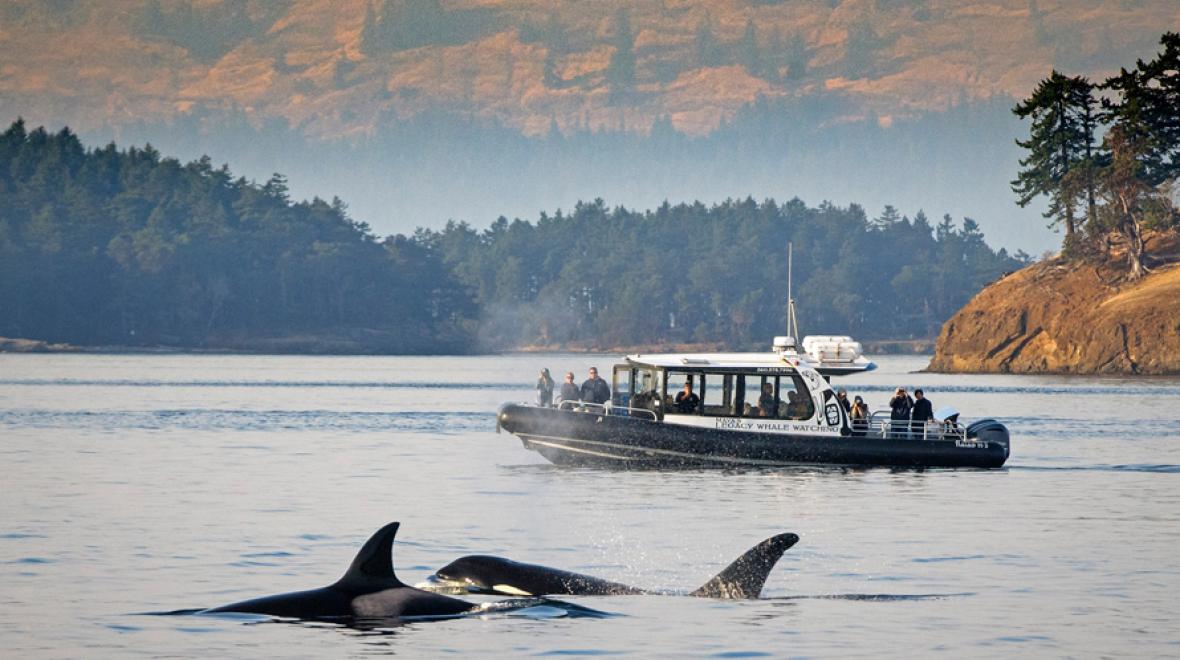What Puget Sound Families Can Do to Help Our Local Orcas

Take a trip to whale country
We live near them, but few of us see orcas without some advance planning or good timing. You can check a pod’s location for possible sightings from land at the Center for Whale Research, which monitors the movement and social life of area orcas, and is the main source of data to the media for events such as births and deaths among the pods.
Or you can get on the water with the whales on a whale-watching trip. The Pacific Whale Watch Association (PWWA) lists over 30 member whale-watching companies from Olympia in south Puget Sound to Nanaimo in British Columbia, offering trips of various sizes and durations. “I’ve had kids as young as 2 months old on a trip,” said Brooke McKinley, a veteran whale-watching guide. “A family can expect an educational experience while spending time with the whales, moving with them, from the water, without the restrictions of land.” At a respectful distance, of course.
PWWA’s mission statement encompasses education and conservation, and the association helped develop the Whale Wise rules for recreational and commercial boats in Puget Sound. “We educate other boaters about appropriate distance and speed around whales,” said Jeff Friedman, U.S. vice president of PWWA and owner of Maya’s Legacy Whale Watching out of Friday Harbor. “We’ll use the bullhorn, wave flags to alert recreational boaters to the presence of the whales. Most of [the boaters] are appreciative and slow down.”
Not everyone is pro-boat-based whale watching. “Boat-based tours can be a platform for education and conservation, [but] I feel it is not well studied,” said Hogan of KWT. “We know that whales are foraging less in the presence of vessels. The impact doesn’t justify the cost [to whales], in my opinion.”
PWWA is trying to address those concerns. The organization encourages guests to donate to the Center for Whale Research and is looking at ways to track those donations and the outcomes of their on-boat education about mitigating the population decline of resident whales. “We haven’t found a way yet, but we’re actively trying to determine how,” said Friedman.











